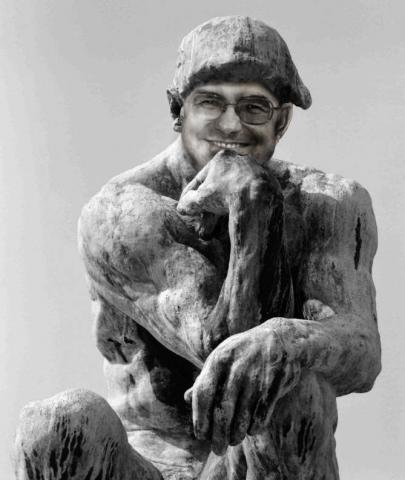"Science is the construction of parsimonious, internally consistent models that reliably predict future observations" says Byron K. Jennings, TRIUMF's Deputy Division Head of Science. An article published last month in Nature Physics, an international scientific journal, referred to Jennings for demystifying the myth that most scientists don't have a clear conception of the scientific method. Instead he proposes that a consistent description of science can be given using a sequence of models with progressively greater predictive power. Outlined and detailed in his paper "The Nature of Science" featured in Physics in Canada, Jennings presents 15 pages of conceptual material where he engages the reader with metaphors and a series of examples.
In presenting one of Karl Popper's contributions to science, Jennings conveys the philosopher's example of falsification of models, "While seeing any number of black crows does not prove all the crows are black, seeing one white crow disproves it. Thus science proceeds not by proving models correct but by discarding false ones or improving incomplete ones." However, he further explores Popper's method by stating that although it is widely used it is not straightforward. "Is that white bird I see really a crow? Have I misidentified a pigeon?" According to Jennings, the problem is that there are no theories that exist in isolation; they are always supported by other subsidiary theories and models. The author (Mark Buchanan) of "Madness in the method" [ http://www.nature.com/nphys/journal/v5/n2/full/nphys1189.html ] published in Nature Physics recognizes Jennings observations and describes them as making "good sense." He gives the scientist credit for simplifying the definition of the scientific method and arguing that observations do not prove or disprove models, instead they provide information that allows one to determine their order of relevance and significance. Ultimately, according to Jennings, new models replace older ones if they are able to predict the observations more effectively.
Jennings has been a part of the TRIUMF family for 27 years. He started as a theorist studying pion nucleus scattering and worked on a wide range of topics since then. One of his favourite experiences is giving talks to students at universities on the nature of science; by dropping a pen a few times and then attempting to drop a helium balloon, he illustrates the concept of falsification and loves to entertain his audience. Currently he is chair of a committee responsible for setting up a project management system at TRIUMF. In regards to his ideas being aired so publicly and receiving important media attention in Nature, Jennings says "It's rather neat that somebody is taking what I have to say seriously. I find it amazing that there is still argument about what the scientific method is, it dates back to the 15th century with Galileo and yet it's still a topic of discussion. There is no standard conception of what science is, of course I think mine should be it! (he laughs) Regardless, it should be like Newton's Laws, engraved in stone by now."
Byron K. Jennings
"The Scientific Method" by Byron K. Jennings can be found at:
Arxiv.org Reference : Arxiv:0707.1719v1, arXiv:physics/0607241
Story by: Maria Jose Crousillat
Photo by: Marcello Pavan and Ting Wang

